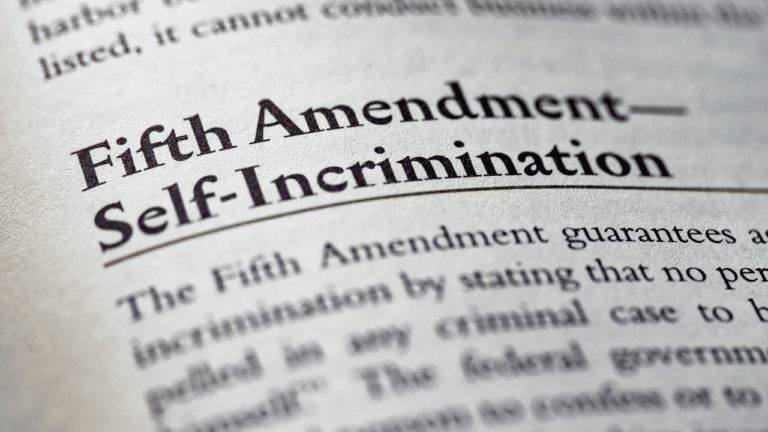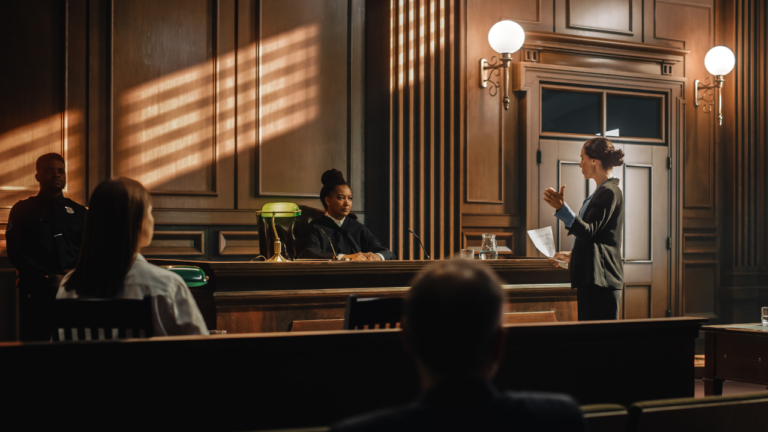The Fifteenth Amendment to the Constitution of the United States prohibits states and federal government from denying or abridging the right to vote based on race, color, or previous condition of servitude. The Fifteenth Amendment was the third and final of the Reconstruction Amendments, ratified in the aftermath of the American Civil War to safeguard the civil and political rights of the people, specifically the recently emancipated slaves.
The Fifteenth Amendment was adopted on February 3, 1870. In response, several southern states imposed voting barriers through Jim Crow Laws like “poll taxes” and literacy tests which included “grandfather clauses” exempting many white voters from their requirements. The Supreme Court of the United States would later dismantle many of these laws in landmark civil rights cases.
What is the Fifteenth Amendment in simple terms?
The Fifteenth Amendment forbids States from discriminating against citizens based on race, color, or other means in matters having to do with voting. Any law or regulation denying an otherwise eligible citizen the right to vote based on these grounds violates the Fifteenth Amendment and is unconstitutional. The Fifteenth Amendment secures universal suffrage solely for males, as this right would only extend to women upon adoption of the Nineteenth Amendment to the United States Constitution in 1920.
WHAT IS THE TEXT OF THE FIFTEENTH AMENDMENT TO THE UNITED STATES CONSTITUTION?
U.S. Const. amend. XV. UNIVERSAL MALE SUFFRAGE.
Section 1. The right of citizens of the United States to vote shall not be denied or abridged by the United States or by any State on account of race, color, or previous condition of servitude.
Section 2. The Congress shall have power to enforce this article by appropriate legislation.
WHAT IS THE HISTORICAL BACKGROUND OF THE FIFTEENTH AMENDMENT?
Although the Preamble declared the Constitution of the United States was written with the intent “to form a more perfect Union,” the Union has been divided since 1776 into states in which slavery was legal and illegal. The “Privileges and Immunities” in Article IV of the Constitution thus did not apply to everyone living in the United States prior to the enactment of the Thirteenth and Fourteenth Amendments.
By the time of the American Civil War, congressional Republicans on Capitol Hill had generally accepted the abolitionists’ ideals that slavery in the United States and its concomitant disabilities needed to end immediately. Carter, William M., Race, Rights, and the Thirteenth Amendment: Defining the Badges and Incidents of Slavery, 40 U.C. Davis L. Rev. 1311 (2007). Even conservative Democrats in the House and Senate realized slavery was inevitably at its end, and the Thirteenth Amendment was designed to enforce abolishment. Added to the Constitution in December of 1865, long after the Union’s military victory, it fulfilled the promise of President of the United States Abraham Lincoln’s Emancipation Proclamation that emancipated slaves in Confederate States of America.
In its 1864 election platform, the Republican Party pledged to amend the Constitution to accomplish the “utter and complete extirpation” of slavery from “the soil of the Republic.” 2 A. Schlesinger, History of U.S. Political Parties 1860–1910, p. 1303 (1973). After a landslide victory, Republicans moved to make good on that promise. Students for Fair Admissions, Inc. v. President and Fellows of Harvard College, 600 U.S. 181 (2023) (Thomas, J., concurring). James Ashley, a member of the Reconstruction Congress, spearheaded the antislavery constitutionalism effort by enacting the Thirteenth Amendment.
During the debates over the Thirteenth Amendment, it was no longer politically acceptable for Northern conservatives to argue in favor of maintaining human enslavement. The debates focused on the effect of ending slavery in the United States rather than whether it should be done. The Amendment borrowed its wording from the Northwest Ordinance of 1787, which prohibited slavery in the Northwest Territory beyond the Ohio River. The Ordinance began: “There shall be neither slavery nor involuntary servitude in the said Territory, otherwise than in the punishment of crimes whereof the party shall have been duty convicted . . . .”
The Thirteenth Amendment Framers viewed the text broadly, arguing it allowed the United States Congress to legislate not merely against slavery itself, but against all the badges and relics of a slave system. The Amendment also granted Congress the authority to enforce its terms, which is an authority not granted in any prior Amendment. Proponents believed the enforcement clause permitted legislative measures designed to give Congress, state legislatures, and law enforcement the ability to accomplish the Amendment’s broader goal of equality for the freedmen. Id.
It quickly became apparent, however, that more joint resolutions by the United States Congress and state legislatures would be necessary to safeguard the Thirteenth Amendment’s goal. Soon after its adoption, the reconstructed Southern States under Andrew Johnson’s Reconstruction program began to enact “Black Codes,” which circumscribed the newly won freedoms of blacks. For example, the Black Code of Mississippi imposed all sorts of disabilities on blacks, including limiting their freedom of movement, and barring them from following certain occupations, owning firearms, serving on juries, testifying in cases involving whites, or voting. E. Foner, The Second Founding 48 (2019).
In response to these involuntary black labor laws that forced blacks to sign labor contracts under the threat of prosecution for vague crimes, Congress passed the Civil Rights Act of 1866 on April 9, 1866. This was the first civil rights bill in the history of the country, and made significant contributions to the difficult transition of African Americans from slavery to freedom in the post-Civil War years. In 1866, Senator Lyman Trumbull, who was chairman of the Senate Judiciary Committee that fashioned the text of the Thirteenth Amendment, explained the right to travel within the context of Section 2 enforcement authority: “It is idle to say that a man is free who cannot come and go at pleasure . . . [and] who cannot enforce his rights.”
What is the Reconstruction Era?
The Reconstruction Era is generally considered the post-Civil War period until the Compromise of 1877. The Emancipation Proclamation on January 1, 1863 marks the beginning of the Reconstruction of the South, and Reconstruction Era Presidents of the United States include Abraham Lincoln, Andrew Johnson, and Ulysses S. Grant.
The Thirteenth Amendment is known as one of the “Reconstruction Amendments,” or “Civil War Amendments,” and was passed by the Senate on April 8, 1864, the House of Representatives on January 31, 1865, and ratified by 27 of the 36 existing states on December 6, 1865. It was proclaimed on December 18, 1865. The other Reconstruction Amendments adopted during the Reconstruction of the American South after the Civil War are the Fourteenth and Fifteenth Amendments, adopted between 1865 and 1870. The Fourteenth Constitutional Amendment secured citizenship, extended the equal protection clause, and ensured other fundamental rights.
During Reconstruction, slavery was abolished throughout the entire nation, secession ended in the Confederate States of America, and the 13th, 14th, and 15th Amendments were ratified. The Reconstruction Era generated the familiar terms “carpetbaggers” to describe Northerners, and “scalawags” for white Southerners who supported Reconstruction efforts.
In addition to the three Reconstruction Amendments, many important laws were passed to provide freed former slaves with equal and fundamental rights under the Constitution. Black people were voting, taking political office, establishing integrated school systems, and forming integrated coalitions. Organizations such as the Ku Klux Klan, the White League, and Red Shirts terrorized black Americans to drive them away from the polls, neighborhoods, schools, restaurants, and everywhere else. However, President Grant used federal power to shut down the KKK in the early 1870s.
Racially-motivated domestic terrorism was not the only lingering effect of the American Civil War. The country was torn by economic devastation. In the Southern United States, farms and their stocks were in shambles, the railroad system and the rest of the transportation infrastructure was in ruins. Restoring the infrastructure of the South became a high priority, but former slave owners in the South had little capital to pay the costs of the restoration curriculum.
James W. Ely, Jr., The Oxymoron Reconsidered: Myth and Reality in the Origins of Substantive Due Process, 16 Const. Commentary 315 (1999).
The Fifteenth Amendment text was proposed to the legislatures of the several States by the Fortieth Congress, on February 26, 1869. On March 30, 1870, in a proclamation of the Secretary of State, it was declared to have been ratified by the legislatures of twenty-nine of the thirty-seven States: Nevada on March 1, 1869; West Virginia on March 3, 1869; Illinois on March 5, 1869; Louisiana on March 5, 1869; North Carolina on March 5, 1869; Michigan on March 8, 1869; Wisconsin on March 9, 1869; Maine on March 11, 1869; Massachusetts on March 12, 1869; Arkansas on March 15, 1869; South Carolina on March 15, 1869; Pennsylvania on March 25, 1869; New York on April 14, 1869 (which withdrew its consent to the Amendment by passing a resolution on January 5, 1870, then rescinded that action over 100 years later); Indiana on May 14, 1869; Connecticut on May 19, 1869; Florida on June 14, 1869; New Hampshire on July 1, 1869; Virginia on October 8, 1869; Vermont on October 20, 1869; Missouri on January 7, 1870; Minnesota on January 13, 1870; Mississippi on January 17, 1870; Rhode Island on January 18, 1870; Kansas on January 19, 1870; Ohio on January 27, 1870 (after having rejected it on April 30, 1869); Georgia on February 2, 1870; Iowa on February 3, 1870.
Nebraska ratified the 15th amendment on February 17, 1870. If New York’s withdrawal was effective, ratification was officially completed on February 17, 1870, rather than on February 3, 1870 with Iowa’s ratification.
The amendment was subsequently ratified by Texas, February 18, 1870; New Jersey, February 15, 1871 (after having rejected it on February 7, 1870); Delaware, February 12, 1901 (after having rejected it on March 18, 1869); Oregon, February 24, 1959; California, April 3, 1962 (after having rejected it on January 28, 1870); Kentucky, March 18, 1976 (after having rejected it on March 12, 1869).
The amendment was approved by the Governor of Maryland, May 7, 1973; Maryland having previously rejected it on February 26, 1870.
The amendment was subsequently ratified by Tennessee, April 2, 1997 (after having rejected it on November 16, 1869).
WHAT IS THE PURPOSE OF THE FIFTEENTH AMENDMENT?
The purpose and command of the Fifteenth Amendment are explicitly set forth in its language: The National Government and the States may not abridge the right to vote on account of race, color, and previous condition of servitude. Rice v. Cayetano, 528 U.S. 495 (2000).
Enacted in the wake of the American Civil War, the immediate concern of the Amendment was to guarantee to the emancipated slaves the right to vote, lest they be denied the civil and political capacity to protect their new freedom and liberty. Vital as its objective remains, the Amendment goes beyond it. Consistent with the design of the Constitution, the Amendment is cast in fundamental terms, terms transcending the particular controversy which was the immediate impetus for its enactment. The Amendment grants protection to all persons, not just members of a particular race. Rice v. Cayetano, 528 U.S. 495 (2000).
The design of the Amendment is to reaffirm racial equality at the most basic level of the democratic process, the exercise of the voting franchise. A resolve so absolute required language as simple in command as it was comprehensive in reach. Fundamental in purpose and effect and self-executing in operation, the Amendment prohibits all provisions denying or abridging the voting franchise of any citizen or class of citizens on the basis of race. By the inherent power of the Amendment the word “white” disappeared from our voting laws, bringing those who had been excluded by reason of race within the generic grant of suffrage made by the State. If citizens of one race having certain qualifications are permitted by law to vote, those of another having the same qualifications must be. Previous to this amendment, there was no constitutional guarantee against this discrimination—now there is.
Though the commitment was clear, the reality remained far from the promise. Manipulative devices and practices were soon employed to deny the vote to blacks, such as racial gerrymandering, “interpretation tests,” procedural hurdles, a “grandfather clause,” and other registration challenges particularly in the Southern United States.
- In Guinn v. United States, the State of Oklahoma enacted a literacy requirement for voting eligibility in 1910, but exempted from that requirement were the lineal descendants of persons who were entitled to vote on or prior to January 1, 1866, or who resided in some foreign nation. The Court invalidated it under the terms of the Fifteenth Amendment, and reiterated that it could not be circumvented.
WHAT ARE POLL TAXES AND LITERACY TESTS ?
Poll Taxes and Literacy Tests were common requirements used as prerequisites to voting. A Poll Tax was a fixed amount due by an individual in order to register as a voter. Literacy Tests were assessments of an individual’s ability to read and write administered to prospective voters as part of the registration process.
Poll Taxes and Literacy Tests were discriminatory tools of disfranchisement employed during Reconstruction in the aftermath of the Fifteenth Constitutional Amendment’s ratification. Early iterations included “Grandfather Clauses” which waived these requirements if a voter’s grandfather had the right to vote; these waivers naturally favored whites who had long enjoyed the privilege of suffrage.
Poll Taxes frequently prevented African Amercans and poor whites from voting as they could not afford to pay the tax. The use of Poll Taxes in Federal Elections would later be abolished by the Twenty-Fourth Amendment to the United States Constitution. The Supreme Court of the United States declared poll taxes unconstitutional in State elections as well in Harper v. Virginia State Board of Elections. Literacy Tests equally disenfranchised African Americans who had diminished access to education. Certain jurisdictions maintained separate literacy tests with more simpler ones administered to whites. The Voting Rights Act of 1965 severely curtailed the use of these tests as it prohibited any voting prerequisite having a discriminatory effect on minority voters.
These measures were implemented as part of Jim Crow Laws, which enforced racial segregation and promoted white supremacy. They were employed along with other tactics such as violence and intimidation by groups such as the KKK as a broader system of voter suppression and disfranchisement.
(6) WHAT WERE THE TEXAS PRIMARY CASES?
The Texas Primary Cases were a series of court cases during the mid-20th century centered around racial discrimination in the Democratic Party in Texas, which effectively created “White’s Only” primary elections thereby excluding African American citizens from participating in the primary process and democracy writ large.
- In Smith v. Allwright, Lonnie E. Smith, an African American voter, sued the Democratic Party after being denied the right to vote in their primary. The Supreme Court of the United States ruled in favor of Smith, invalidating the white primary system as a violation of the Fifteenth Amendment to the United States Constitution, which prohibits racial discrimination in voting.
- In Terry v. Adams, the Democratic Party in Texas sought to circumvent the decision in Smith v. Allwright by implementing a system known as the “Jaybird primary” where a white-only primary was held as a precursor to the official Democratic primary, which effectively allowed white voters to select the party’s candidates prior to the general election. The Supreme Court of the United States ruled that the Jaybird primary was also unconstitutional as a violation of the Fifteenth Amendment. This ruling marked the last case addressing the white primary system designed to discriminate against African American votes in the United States.
FIFTEENTH AMENDMENT TO THE UNITED STATES CONSTITUTION
The Fifteenth Amendment to the Constitution of the United States was the final of the three Reconstruction Amendments, a capstone in efforts to secure the civil and political rights of the people following the American Civil War. Securing universal suffrage for males, the Constitutional Amendment prohibits federal or state governments from denying or abridging the right to vote based on race, color, or previous condition of servitude.
Despite these prohibitions, discriminatory practices such as poll taxes and literacy tests, and voter intimidation from groups like the KKK and the Red Shirts persisted across many states in the ensuing years, particularly in the Southern United States. The Supreme Court of the United States would subsequently curtail many of these laws, and the United States Congress would pass The Voting Rights Act of 1965 during the Civil Rights Movement, heralding a new era of voting protections.
However, recent court opinions have diminished some of these safeguards and uncorroborated claims of voter fraud are ushering renewed voting restrictions across the country. There is, thus, some expectation of a fresh generation of Fifteenth Amendment doctrine from the current Court.
FIFTEENTH AMENDMENT COURT CASES
The Supreme Court of the United States has interpreted and applied the Fifteenth Amendment since its adoption in 1870, with many opinions upholding laws and testing their constitutionality and becoming linchpins in voting rights jurisprudence.
- In Shelby County v. Holder, the Supreme Court of the United States invalidated portions of the Voting Rights Act of 1965 that required certain jurisdictions to seek federal preclearance before implementing any voting law changes. The slim 5-4 majority opinion recognized that preclearance was based on 40-year-old data, mandating that the 15th Amendment was “not designed to punish for the past; its purpose is to ensure a better future.” In a sharp dissent, Justice Ruth Bader Ginsburg acknowledged voting discrimination had indeed decreased, but attributed this to the Act itself, noting that “[t]hrowing out preclearance when it has worked and is continuing to work to stop discriminatory changes is like throwing away your umbrella in a rainstorm because you are not getting wet.”
- In Gomillion v. Lightfoot, the Supreme Court of the United States struck down the gerrymandering of an electoral district as a violation of the 15th Amendment. The Court found that the State had redrawn the city limits in question to exclude lawful African American voters, ruling this unlawful racial discrimination.
- In Rice v. Cayetano, the Supreme Court of the United States voided a Hawaii law involving elections for trustees in the Office of Hawaiian Affairs. Under the law in question, only Native Hawaiians were allowed to vote in these elections. The Court ruled this law violated the 15th Amendment by using ancestry as a proxy for race and for a “racial purpose.”














